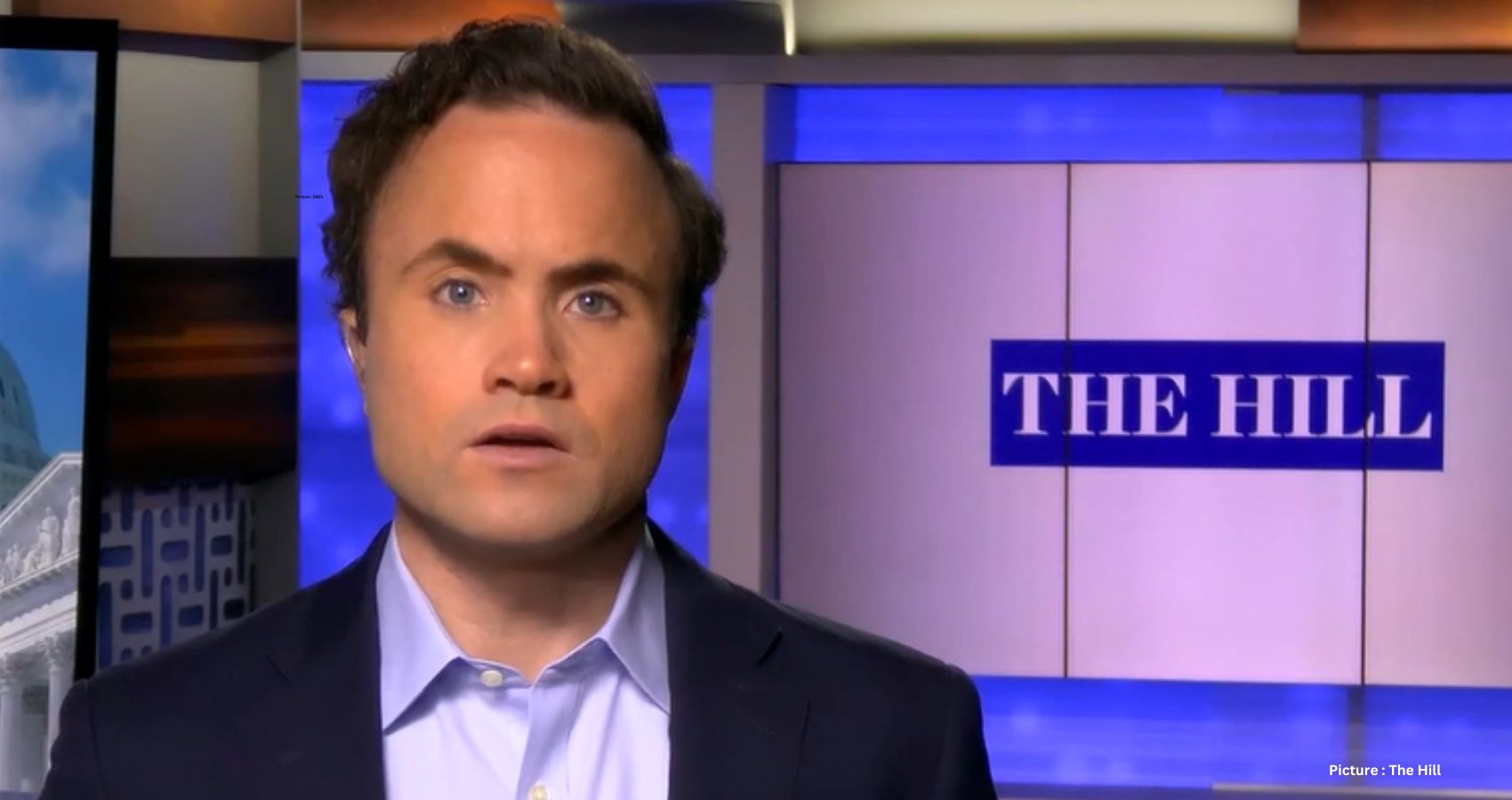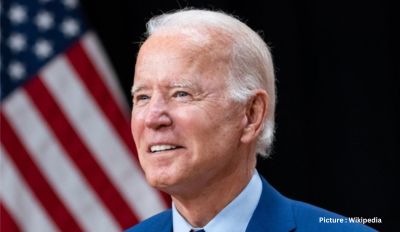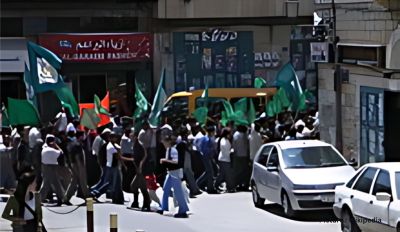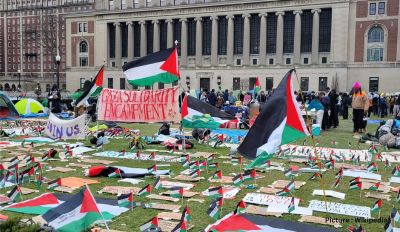In a recent Israeli strike on Monday that claimed the life of an Iranian officer in Syria, renewed fears of a wider conflict in the Middle East have emerged. The incident took place against the backdrop of the ongoing war in Gaza, where the death toll is rapidly rising. The strike, which resulted in the death of a senior Iranian officer, has provoked vows of retaliation from Iran, escalating tensions in the region.
“Iran has vowed to retaliate against Israel for the strike, which killed a senior Iranian officer and marked Tehran’s most personal loss yet in the Israel-Hamas war,” reported X, the platform formerly known as Twitter.
The situation is further complicated by the increasing civilian casualties in Gaza, raising concerns that the conflict might spill over and jeopardize the efforts by the U.S. to contain the war within the borders of Israel and the Palestinian militant group Hamas. The U.S. itself is becoming more deeply entangled in the conflict, facing relentless attacks from Iranian-backed groups in Iraq and Syria.
An unprecedented Christmas Day drone strike by militias in Iraq left an American soldier critically wounded and two others injured, underscoring the expanding scope of the conflict. While analysts do not foresee an immediate outbreak of a broader war, the events signal that the situation is far from stabilizing as the New Year approaches.
Barbara Slavin, a distinguished fellow at the Stimson Center, commented, “Everybody is playing a chess game. You have so many different players now.” However, she emphasized that the major casualties of the war are concentrated in Israel, Gaza, and the West Bank, viewing other attacks as symbolic rather than indicative of a broader conflict at this time.
“The major casualties of this war have taken place in Israel and in Gaza, and the West Bank. These other attacks, while they’re kind of scary, are really very much symbolic, more symbolic than part of a broader conflict at this time,” Slavin added.
The Israeli strike targeted Brig. Gen. Sayyed Razi Mousavi, a senior adviser to Iran’s Islamic Revolutionary Guard Corps responsible for coordinating between Syria and Hezbollah, the Iranian-backed military and political group in Lebanon. Israeli Defense Minister Yoav Gallant declared that his forces are engaged in a “multi-arena” war following previous attacks by Hamas, which resulted in over 1,200 deaths in southern Israel.
“Mousavi had been close to Iranian Gen. Qasem Soleimani, who was slain by the U.S. in 2020 during the Trump administration, and his death this week prompted an outpouring of grief from Iran and its allies, just as Soleimani’s death did nearly four years ago,” reported the original article.
Iranian President Ebrahim Raisi announced that Tehran would retaliate for the strike, characterizing Mousavi’s death as “another sign of frustration and weakness of the occupying Zionist regime in the region.”
Trita Parsi, the executive vice president at the Quincy Institute for Responsible Statecraft, suggested that Israel likely conducted the strike to send a message to Iran, asserting that senior Iranian officials can be targeted for their involvement with proxy groups. However, Parsi argued that Iran would not respond directly to Israel, instead opting for a longer-term strategy against the U.S. and Israel.
“Iran will not respond to Israel directly or with an escalatory attack, arguing ‘they’re playing the longer game’ against the U.S. and Israel. ‘They’re building up the capability of the Houthis, Hezbollah, and others,'” explained Parsi.
While Israel has previously targeted high-ranking Iranian officials, Tehran has typically refrained from direct strikes on Israel, often relying on proxies to carry out attacks. The Middle East remains tense, with Iranian-backed militia groups launching around 100 attacks on U.S. troops since mid-October.
The U.S. has, so far, experienced only minor injuries in these attacks in Iraq and Syria. The Christmas Day strike, however, saw an explosive drone hitting an air base in northern Iraq, leaving one U.S. soldier in critical condition. The U.S. responded with retaliatory strikes that killed one militant and injured 18 others.
When questioned about potential escalations during the holidays, the Pentagon referred to Defense Secretary Lloyd Austin’s statement, emphasizing that the U.S. does not seek escalation but is “committed and fully prepared to take further necessary measures to protect our people and our facilities.”
The Houthis, an Iranian-backed rebel group in Yemen, pose an additional threat in the Red Sea, targeting ships and merchant vessels. While the U.S. has established a maritime task force to deter the Houthis, the group remains committed to continuing its attacks in the Red Sea.
Analysts assert that the only way to alleviate tensions across the Middle East is through a cease-fire or a significant slowdown in the war in Gaza. The high death toll in Gaza, exceeding 20,000 according to Hamas health officials, has sparked global outrage, particularly among Arab nations, Iran, and its allies.
“The U.S. is pushing Israel to move the war into a lower-intensity phase, a diplomatic campaign that bore some fruit earlier this month when Israeli officials signaled they would do so when the time was right,” noted the original article.
Despite these efforts, it remains unclear when such a phase transition might occur. Israeli Prime Minister Benjamin Netanyahu emphasized that fighting is intensifying in southern Gaza, where nearly two million Palestinian civilians have sought refuge.
“We are not stopping and we will not stop until we are victorious, because we have no country but this one, and we have no other way,” declared Netanyahu before the Knesset.
Trita Parsi from the Quincy Institute warned, “every day we’re getting closer and closer to all-out war” in the Middle East, emphasizing that the conflict is likely to escalate until Israel eases its assault on Gaza.
“It’s an extremely dangerous, escalatory cycle that we’re in, and the most obvious and most effective way of stopping and preventing a regional war is the one step that the administration is least inclined to pursue. And that is to actually have a cease-fire in Gaza,” Parsi concluded.











